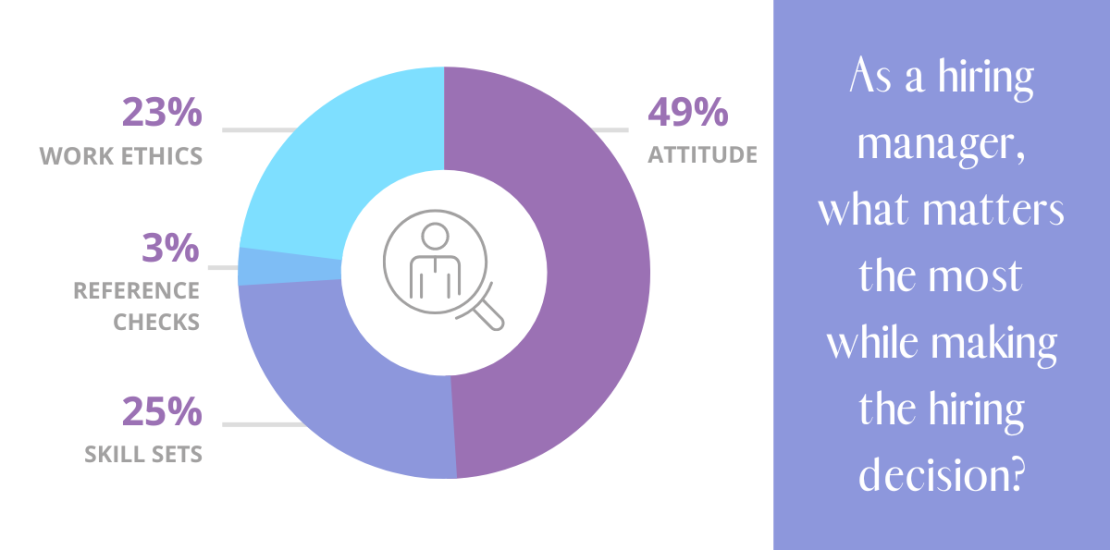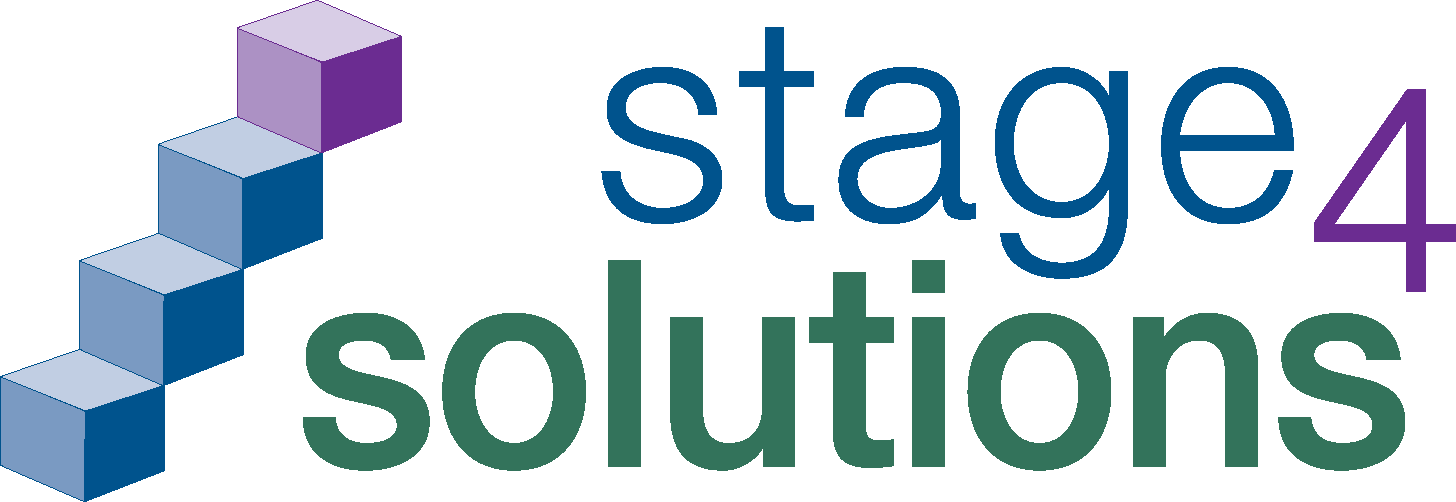Top Factor When Making A Hiring Decision: Attitude
- October 24, 2022
- Posted by: Stage 4 Solutions
- Category: Blog

Hiring the wrong people is costly for any business. Research from the U.S. Department of Labor states that depending on the role and company, the cost of hiring the wrong employee can be as high as $240,000. While making the hiring decision, there are several factors to consider. Finding a candidate with the perfect background, skillsets and attitude is ideal but “perfect” candidates are rare to find.
We wanted to understand what our professional network values the most while making the hiring decision and we polled our community for their insights.
As a hiring manager, what matters the most while making the hiring decision?
- Skill sets 25%
- Work ethics 23%
- Attitude 49%
- Reference checks 3%
Attitude is the winner according to our poll results. Traditionally, education, industry knowledge and specific skill sets required for the position would be the only or main areas of consideration. However, only focusing on skill sets and not attitude may result in a lack of cultural fit and high turnover.
According to LeadershipIQ’s study, 46% of newly hired employees fail within 18 months. Despite popular belief, skills are not the primary reason behind this failure, but attitude issues are in the driver’s seat such as poor interpersonal skills which many of the managers admit were overlooked during the interview process. The findings of the study suggest that 89% of hiring failures are driven by attitudes and 11% are driven by skills.
We all have heard the phrase “hire for attitude, train for skills.” What does this really mean in reality? When you hire for attitude vs. skill sets, the primary focus is on the soft skills and personality that the candidates possess. The skills are important but are a secondary factor for consideration. Companies still look for people who possess the right skills but a candidate with the right attitude who doesn’t carry all skills would be the winner compared to another candidate with perfect technical skills but a lack of cultural fit. Companies that hire for attitude know that technical skills can easily be trained as long as the candidate has the required background and ability and drive to learn but personal attributes are more difficult to train.
When companies adopt the approach of hiring for attitude, they are able to naturally build a unique and strong company culture and brand, resulting in a happier and more engaged workforce with people sharing similar values. Gallup’s study states that engaged employees produce better business outcomes than other employees do, across company sizes, nationalities, industries and in both good and bad economic times. The study uncovers that companies that have highly engaged employees experience 59% less turnover than other companies.
How to hire for attitude?
Once you decide that hiring for attitude over skill sets is the right direction for your organization, the next step is to adjust the recruiting process. It is good to first establish the team’s values and define the personality traits that are most in the specific role. The attitude characteristics should be specific to the team/role, not a general list. Here are some best practices to hire for attitude:
- Establish a diverse interview team:
A best practice is to involve different members of the team in the interview process. This way, different people who share your company’s values will have the chance to evaluate the candidate and share their honest feedback. This approach also provides the candidate with a better view of your organization and team.
- Define non-negotiables and must-haves:
There are acceptable and tolerable characteristics and non-negotiables that a candidate must have or must not have. It is good to define types of behavior that oppose your company values, so all interviewers are in agreement and know what to look for.
- Prepare questions in advance:
Just like screening for technical skills, it is a good practice to prepare a set of personality-indicating questions. For example, if you are looking for people who should have the ability to learn and figure things out, you can ask such questions during the interview to rule out the ones that do not possess these skills.
- Ask behavioral questions:
In interviews, ask for examples of past situations where candidates would need to employ the right attitude for the role. It is better to not ask direct questions like “Do you like to learn new systems?”, and instead ask “Tell me about a time when you had to learn a new system, and how did you do that?” or “Tell me about a situation when there was a significant unexpected change in strategy – how did you manage through the change?” In such questions, it is important to listen for what is NOT said, as well as what is said.
At Stage 4 Solutions, we work hard to understand each client’s company culture and work environment and strive to find the best candidates who are a match on every level. For our internal hiring too, we value attitude over technical skills as long as the candidates have the right attitude, drive and ability to learn and are committed. We have seen great results and have a team of diverse individuals who share a set of similar values.
What is your top priority when making the hiring decision? Please share with us!

